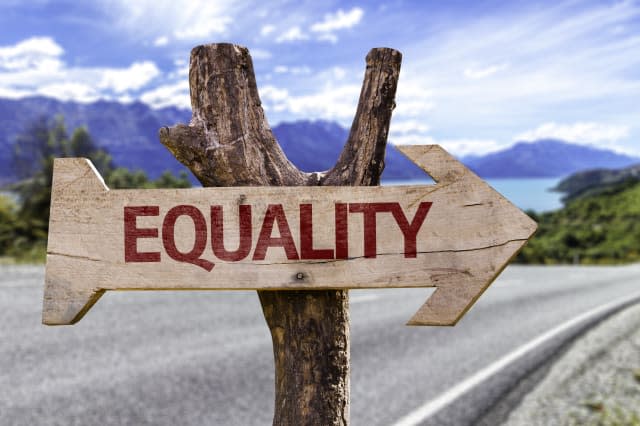Gender pay gap: men are also losing out

A deep unfairness and inequality stalks the nation's workplaces – unequal pay.
It's more than 40 years since the Equal Pay Act came into force, and yet men and women are still paid different amounts for doing exactly the same job. Given that women bear the brunt of this, you may wonder why I am so concerned about men.
Because women really do bear the brunt of this problem; women fall victim to this in every country in the world. According to the International Labour Organisation for every £1 earned by men, women earn 77p.
But things are changing, at least for some demographics. In recent years, figures released from the Office For National Statistics show that women in their 20s who work full time now earn several percentage points more than their male counterparts.
The press responded to this with bizarre enthusiasm - The Observer stated: "That's not sexist, just fair," and The Daily Mail proclaimed: "Women win gender pay war in their 20s!"
Let's be clear – no one 'wins' in an unfair situation like this. Either we want to achieve equality in pay or we don't, and if we do then we need to fight for men's pay rights as well as women's.
Okay, perhaps you'd like to question why I am so worried about men when there is still massive and growing inequality that is stacked against women. After all, the latest ONS figures show that women working full time earn an average 15.7% less overall than their male counterparts.
And figures from the Chartered Management Institute show that female bosses earn 35% less than men in exactly the same roles.

I won't argue with you – the gap in pay sickens me. It shows a gender bias so deep rooted that many companies aren't even aware they are doing it.
But I want to focus on the gap in male pay for two reasons. One – it is incredibly unfair. I don't believe in equality for women, I believe in equality for all. If men start to suffer while women get a fairer deal then that isn't success, that's a scandal.
Secondly, let's have a think about why women in their 20s might be paid more. The cynic in me wonders if this is an easier and cheaper way for employers to reduce their company's overall pay gap.
If women are paid more in their 20s, when salaries are usually at their lowest, then that could cover up some of the inequalities further up the chain. Put simply; by paying younger women a few hundred more than men their age, employers can hide the fact they pay older men a few thousand more than older women.
Because the figures look at the average salaries across the entire spectrum, a company can look more equal on average, while actually being grossly unequal in reality. If that is the case then no one wins, not the young men paid less at an expensive time of their lives and certainly not the older women paid vastly less for doing the same job as their male peers.
Unequal pay hurts everyone, no matter who is supposedly 'winning the gender war'. If young men are paid less than young women then they may feel bitter and angry, and they may be less likely to care about unequal pay later in life.
Even in jobs where men are consistently paid more than women, men could lose out. After all, an employer is incentivised to hire women if they can get away with paying them less.
In short, it's time to end pay inequality – all pay inequality. And we won't achieve that with bigger pay packets for the 20-something women.
What do you think? Is our writer worrying about a non-issue or are her points valid? Have your say using the comments below.
More articles from AOLMoney you might enjoy
Taking advantage of supermarket mistakes is legal looting
Working grandparents could spark childcare problem
Forget free meals - poor kids need free uniforms



